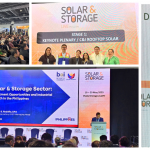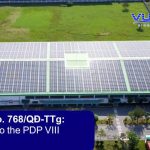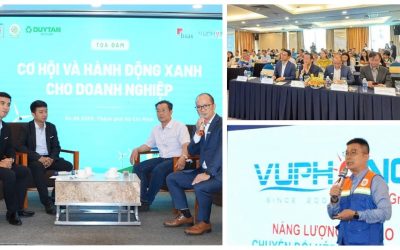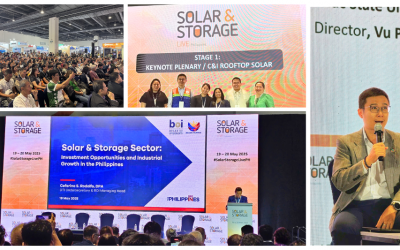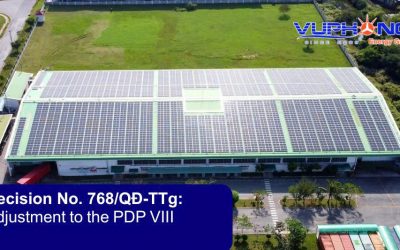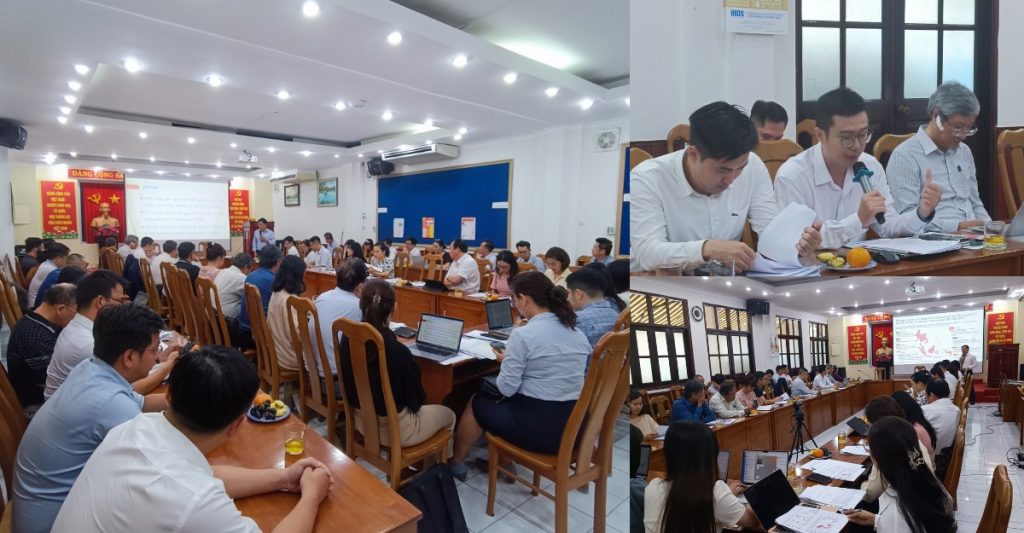
On April 22, 2024, the Ho Chi Minh city Institute for Development Studies (HIDS) organized a scientific seminar titled: “Development of the carbon credit market in Ho Chi Minh City.” The event attracted participation from businesses, experts, and scientists…
During the three-hour session, the advisory board implemented “Resolution No. 98/2023/QH15 of the National Assembly on piloting certain mechanisms and policies for the development of Ho Chi Minh City” (Resolution 98), experts presented open discussions on the opportunities and challenges of developing the carbon credit market.
Dr. Vu, Truong Minh Huy, Deputy Director of the Ho Chi Minh City Institute for Development Studies, stated that relevant parties are actively researching and implementing this program. The first two projects involve using LED lights for illumination and installing solar systems on office building roofs, but they also face significant challenges.
Ho Chi Minh City also promotes green growth, establishing policy frameworks, and action plans that include at least 3 elements related to the carbon credit market. The city is also committed to building a green Can Gio, afforestation, improving urban environments, renewable energy, green village models, and green economy.
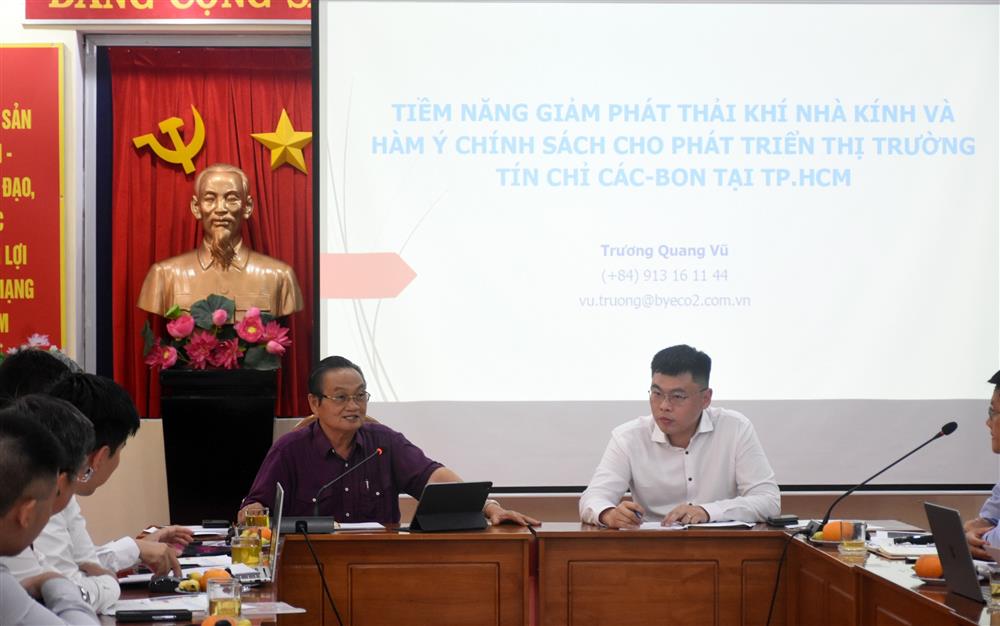 Dr. Lich, Tran Du, Chairman of the Advisory Council for the implementation of Resolution 98, spoke about the importance of the seminar (Image source: HIDS)
Dr. Lich, Tran Du, Chairman of the Advisory Council for the implementation of Resolution 98, spoke about the importance of the seminar (Image source: HIDS)
Mr. An, Pham Dang, General Director of VP Carbon and Deputy General Director of Vu Phong Energy Group, shared his opinions on priority aspects that Ho Chi Minh City should prioritize, such as its role as a project developer in the carbon market to ensure its contribution to the Nationally Determined Contributions (NDC). Prioritizing renewable energy conversion as the basis for implementing green transportation. Collaboration with stakeholders to enhance understanding and capacity is essential. This will attract green finance from global organizations.
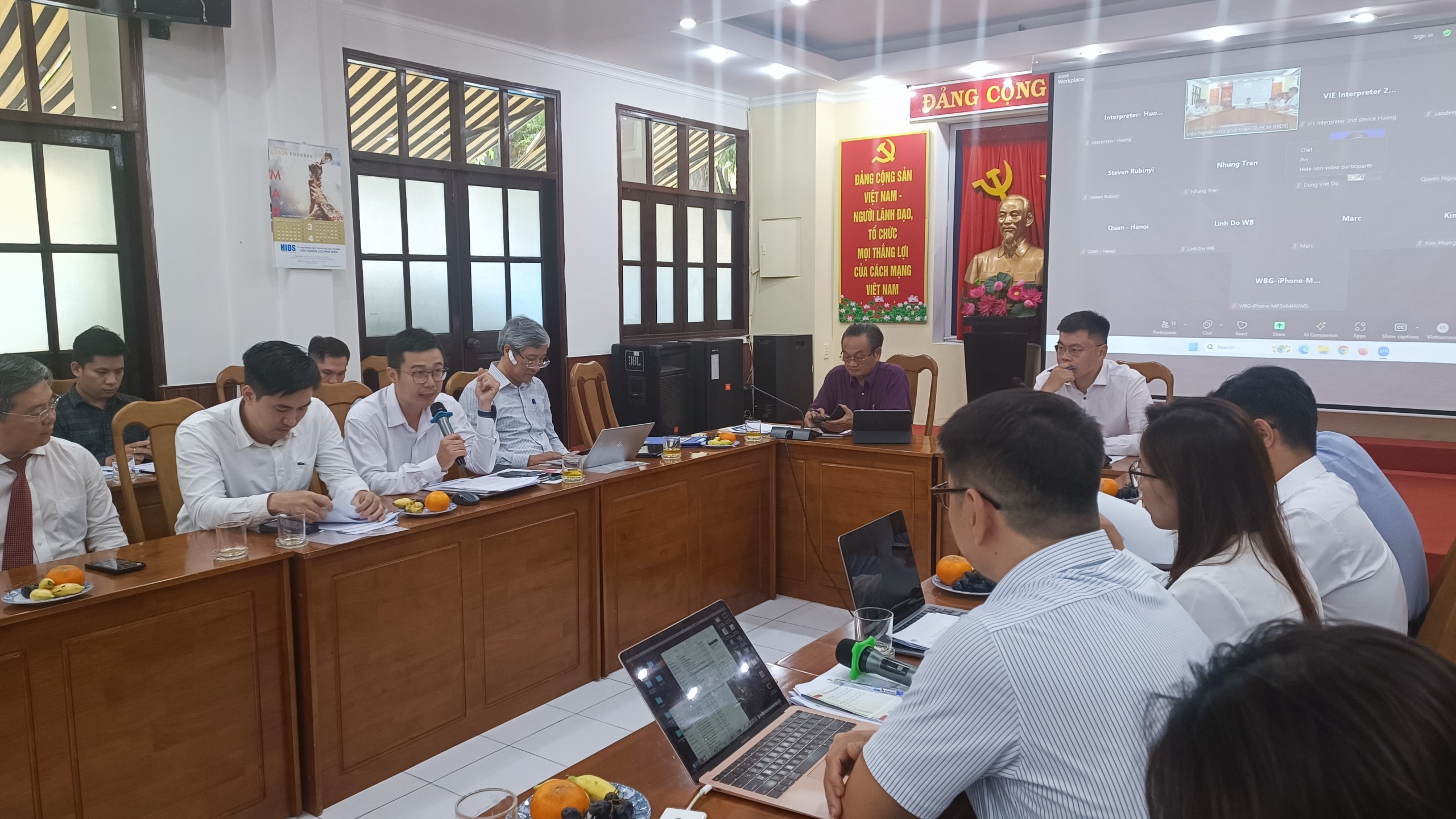 Mr. An, Pham Dang – Director of VP Carbon, Deputy General Director of Vu Phong Energy Group at the seminar
Mr. An, Pham Dang – Director of VP Carbon, Deputy General Director of Vu Phong Energy Group at the seminar
Furthermore, challenges related to sourcing funding for projects generating carbon credits were highlighted during the exchange, along with the need to refine legal frameworks. Most global regulations for developing and issuing valid carbon credits rely on international organizations. Awareness of the carbon market is still uneven, with many aspects not thoroughly understood.
| Resolution No. 98/2023/QH15 on piloting certain mechanisms and policies for Ho Chi Minh City’s development allows the city to experiment with financial mechanisms to reduce greenhouse gas emissions through carbon credit exchange and offset. According to the resolution, carbon credits generated from programs and projects under the carbon credit exchange offset mechanism are invested using the city’s budget funds, traded with domestic and international investors. The city budget enjoys 100% of the revenue from carbon credit transactions, which is used for climate change adaptation programs, green economic development, digital economy, and circular economy development. The resolution consists of a total of 12 articles, regulating experimental mechanisms and special policies for Ho Chi Minh City’s development regarding investment management, finance, state budget, urban management, environmental resources, priority industries to attract strategic investors to the city, management of science and technology, innovation, organization of the city’s government apparatus, and Thu Duc city. The resolution is effective from August 1, 2023. |
Vu Phong Energy Group

